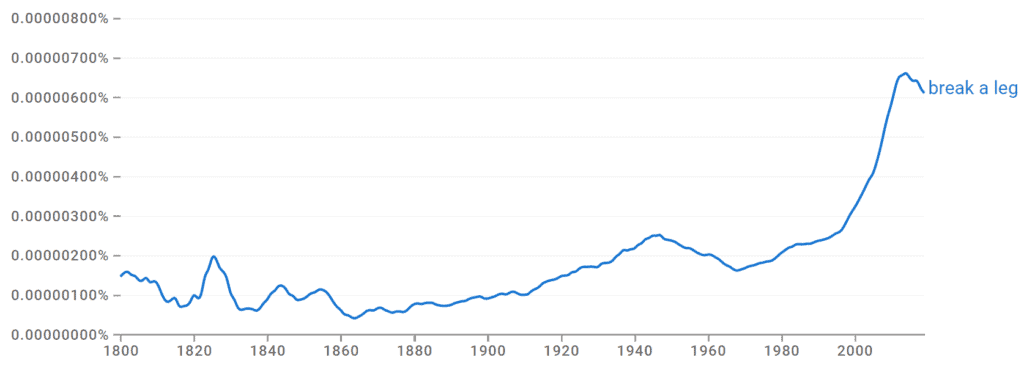Do you love to learn new words and sayings? You’ve probably heard the phrase “break a leg” without even realizing it! But do you know where this expression comes from or why people use it?
Read to find out more about the origin and meaning of this interesting phrase. It may surprise you to learn its connection with theater, luck, and superstition. So don’t just sit there – break a leg!
Break a Leg

Many of us have heard the oft-said phrase “break a leg” while participating in performances ranging from theater to musicals or when first starting new endeavors. While it may appear to be an offhanded expression wishing ill upon another person, it is actually meant as an offering of goodwill and encouragement to do great things.
This phrase originates from backstage theatrical superstitions suggesting that saying “good luck” can result in the opposite. Hence, by wishing someone to “break a leg,” they are wishing for success and accolades.
What Does Break a Leg Mean?
“Breaking a leg” is an expression and English idiom commonly used to encourage performers and those engaged in creative pursuits.
It is not a literal call for one to injure themselves, but rather serves as an umbrella phrase for extending good luck as an individual takes a step out onto the stage or embarks upon a journey.
When said with sincerity and cheerfulness, it can bolster enthusiasm and motivate someone faced with uncertainty. In short, this expression aims to bring hope, courage, trust, and solidarity in the face of challenge.
Who Invented the Phrase Break a Leg?

The etymology of the common idiom “break a leg,” uttered as a wish for success, is steeped in mystery. Originating in the American theater scene in the early 20th century, this saying has been linked to many possible sources.
The most likely source is the German phrase “Hals-und Beinbruch,” which literally translates to “neck and leg break” as well as the Hebrew blessing “hatzlakha u-brakha,” meaning “success and blessing.”
While we may never know who truly coined the phrase or why, break a leg continues to be used among those on stage today, both as a customary sign of support and wishing fellow performers luck before a performance. But, really, take it with a grain of salt because there’s no definite meaning.
How Do You Use the Idiom Break a Leg?
Strange idioms like “break a leg” is generally used as an informal expression of encouragement, wishing good luck to someone who is on the cusp of performing or participating in something challenging.
It implies that you have done all you can to prepare for success, and the only thing left to do is just go out there and let your talent shine! As such, it is typically said before an artist’s performance, an athlete’s game, or a speaker’s speech.
Do Americans Say Break a Leg?
While most Americans are familiar with theater phrases like “break a leg,” it is derived from an old theatrical tradition that dates back to the 20th century. The term was originally used to wish an actor or performer good luck on stage during a performance.
Over time, however, the phrase has become widely adopted by the American public, and its usage has extended well beyond those involved in theatrical arts.
Many people now use “break a leg” as commonly as they would say “good luck” or “all the best” when someone is embarking on an endeavor that requires courage and they want to express encouragement and support.
No matter who says it or where it’s being said, this idiom will likely remain a beloved celebratory phrase for many years to come. It’s even given weight by those who have a belief in superstitions.
What Is the Answer to Break a Leg?
The standard answer when someone wishes you “break a leg” is “thanks.” It’s one of the common phrases you say to someone if you wish them a perfect performance.
To Review
The phrase “break a leg” is thought to have originated in the theater, with some sources attributing it to the early 20th century. It then became popular among professional performers and is still commonly used today. The exact origin of the phrase is not known, but its usage has since become entrenched in theatrical lingo.
While it may seem inherently contradictory to wish someone injury, it was coined as a way of conveying good luck without using conventional phrases such as “good luck.”
